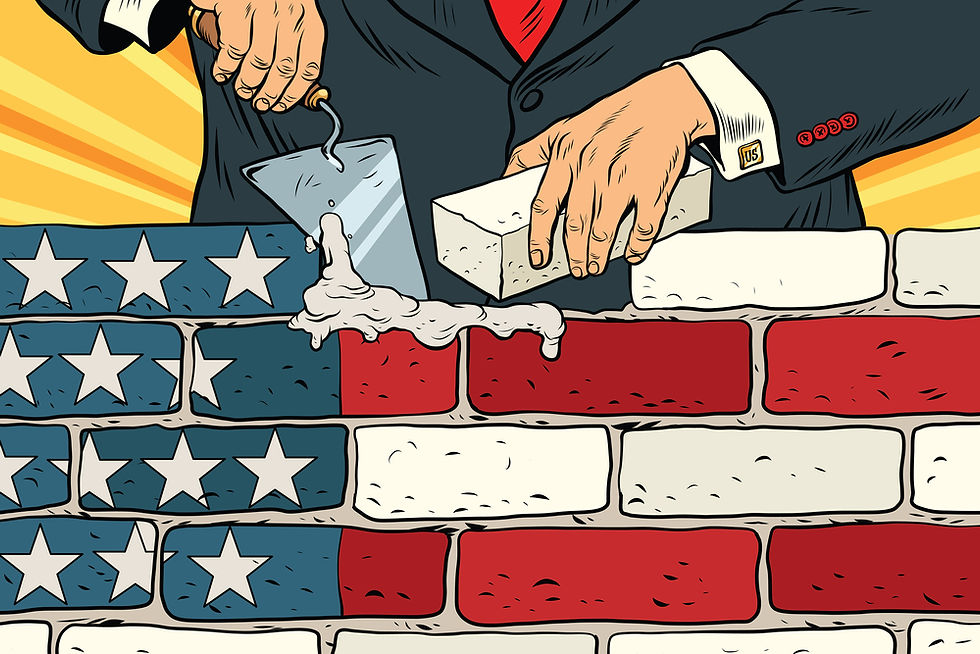The United States is Signalling Surrender of Responsibility to the Free World
- Young Diplomats Society

- Aug 24, 2025
- 3 min read
Updated: Aug 26, 2025
By Layla Bautista

The re-election of President Donald Trump and a series of alarming and surprising decisions made by the administration have sparked a global debate about the United States' role in the international community. Whilst the United States retains its military and economic might, the EU, Russia, and China have moved to position themselves to take advantage of the interregnum left by the United States' withdrawal from the international system, accelerating the shift toward a more multipolar world order.
The United States is the world's largest military power and has a long history of mediation, intervention, and expeditionary deployment. Though under the second Trump Administration, the United States has adopted a far more reserved position on the international stage. While the United States has called for an end to the wars between Russia and Ukraine and Israel and Gaza, it has done little to promote peace seriously. This marks a stark departure from the United States’ assertive involvement in past conflicts such as the Iraq War, the Gulf War, and the war in Afghanistan, and instead echoes its more hesitant engagement during the early years of both World War I and World War II.
Recently, tensions between Pakistan and India have been exacerbated due to terrorist attacks in the disputed territory of Kashmir, where 25 Indian nationals were killed by terrorists allegedly supported by the Pakistani government. There has been a significant exchange of ordnance, as well as a breakdown in diplomatic ties, which has included the suspension of the Indus Waters Treaty, the termination of a visa-free travel regime with Pakistan, and the closure of the Attari border crossing between the two countries.
However, a ceasefire was called and mediated by more than 30 countries. Nevertheless, President Donald Trump claimed responsibility for the ceasefire on his social media account, X. At the same time, Vice President JD Vance has expressed that the United States will not interfere in the conflict between India and Pakistan and has opted to encourage the de-escalation of further conflict.
At the time of writing, an uneasy ceasefire is holding between the neighbouring countries. The degree to which the United States, and Trump specifically, can claim credit for this remains opaque at best. In any case, it reflects Trump's desire to be perceived as a peacemaker, regardless of his actual diplomatic prowess.
Since the invasion of Ukraine by Russian forces in January 2022, Western nations have long called for the withdrawal of Russian forces from Ukraine. Nations across the globe have called for an end to the war, Europeans accepted millions of refugees from Ukraine, and the United States has given over 175 billion USD in foreign aid to Ukraine. However, it has come as a surprise that the United States has voted against a United Nations resolution that condemns Russia’s invasion of Ukraine and calls for peace between the nations. It suggests that the United States lacks the will to confront Russia diplomatically, let alone militarily, and that continued confrontation may no longer align with the evolving priorities of the U.S. as interpreted and pursued by Trump.
In the absence of the US, the United Kingdom and France have taken a leadership role in the Western World by championing a “coalition of the willing” against Russia and in support of Ukraine. The UK Prime Minister, Keir Starmer, is taking a leading role by outlining a plan to end the war with Russia. Starmer and other European leaders have emphasised the need for European unity, which would include military aid to Ukraine, economic sanctions on Russia and forming a coalition of allies willing to defend Ukraine’s sovereignty and peace. The absence of the US from these summits has not gone unnoticed by Beijing and Moscow, who are observing a growing schism in the Western Alliance.
While, from many angles, the United States appears to be on an isolationist bent, imperial chatter from the White House suggesting ambitions to acquire Canada, Panama, Greenland, and Gaza deflates a strictly isolationist reading of Trump's foreign policy. The intersection of domestic and foreign policy has manifested in a flurry of Tariff policies, mass deportations (over supposed security concerns), and bans on foreign student enrollment at universities. The United States’ growing isolationism in some arenas, coupled with assertive interventions in others, may signal that it has relinquished its traditional role as leader of the free world. The resulting global polarisation and regionalisation appear less a universal trend than a symptom of a uniquely American malaise.
Layla Bautista is currently studying at Latrobe University for a Bachelor of Commerce majoring in economics and a Bachelor of International Relations. She is interested in economics, Southeast Asian politics and international trade.

















Comments